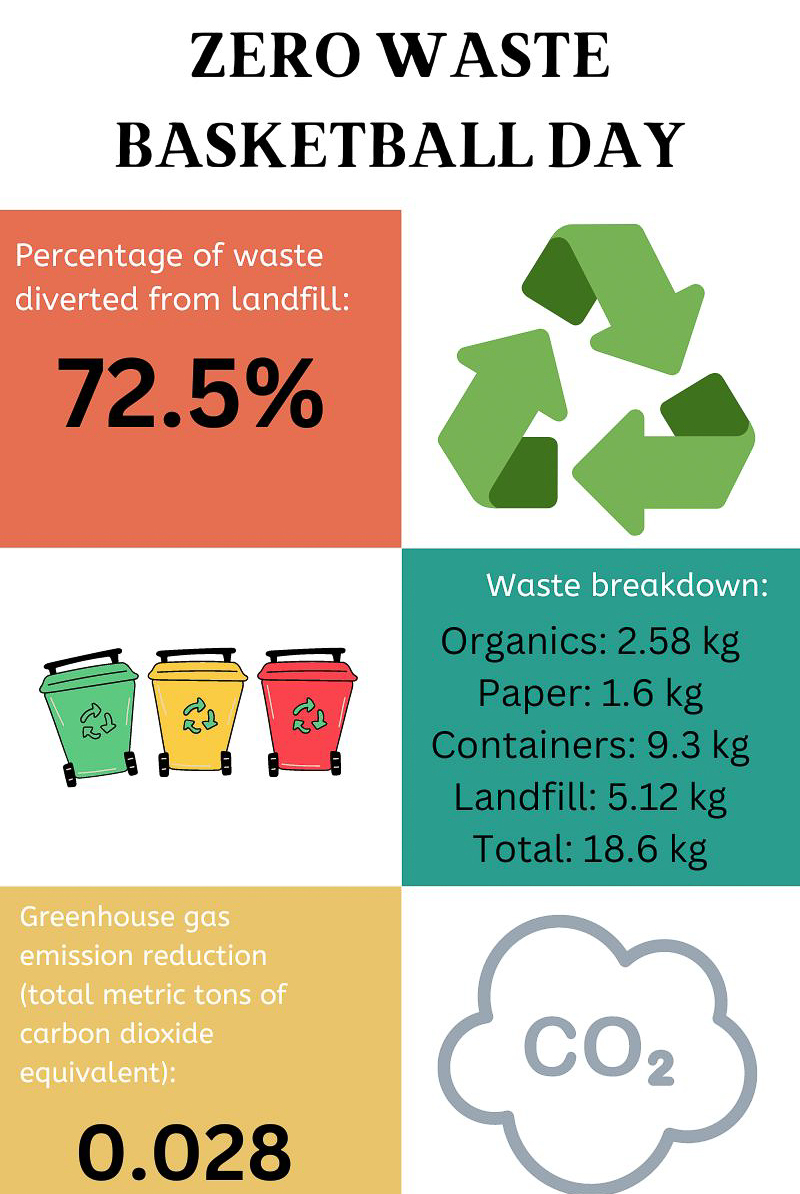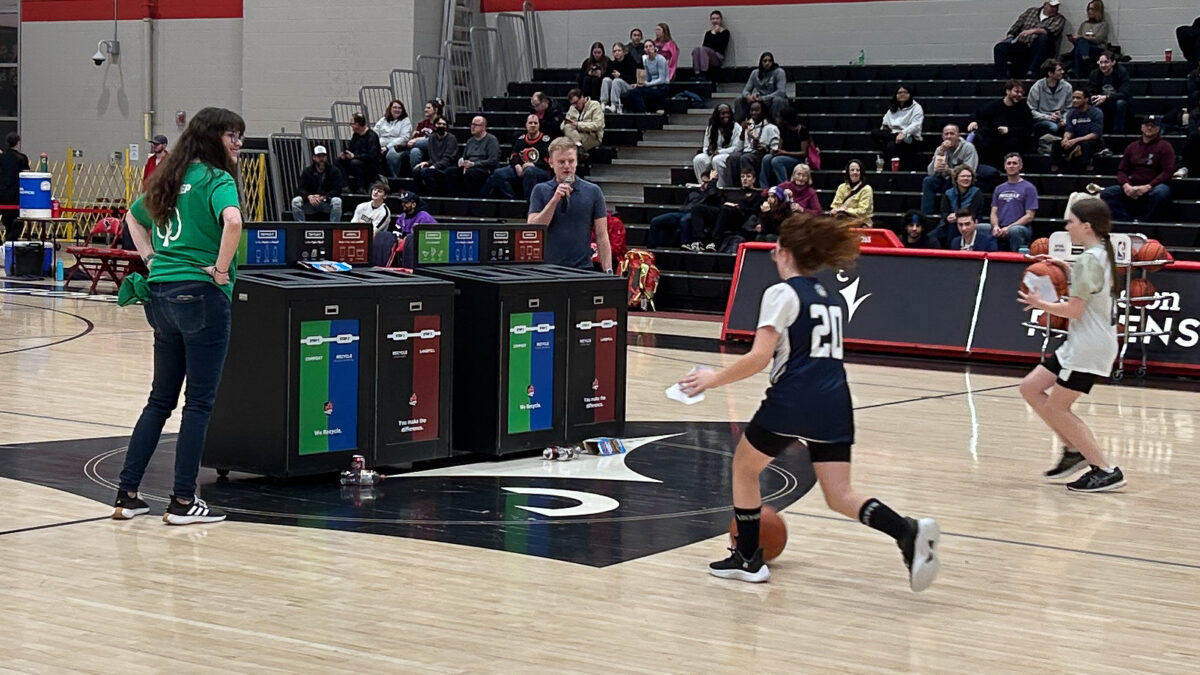It’s waste not, want not at Carleton University and campuses across North America for eight weeks this winter as the 2024 Campus Race to Zero Waste (CR2ZW) is now underway.
This year’s competition tipped off at Carleton recently with a basketball day aimed at promoting the proper sorting of recyclable materials.
This first awareness-raising event was built around two varsity basketball games as Carleton’s men’s and women’s Ravens took on the visiting Waterloo Warriors.
Philip Mansfield, the school’s manager of sustainability, told Capital Current that Carleton has not participated in the race since before the pandemic, but has rejoined the competition this year.
CR2ZW is organized by the Virginia-based National Wildlife Federation. During the competition, universities and colleges weigh their total waste for eight weeks and report their statistics. The website notes that uOttawa was the only Ontario school to participate in the eight-week long competition in 2023, winning in the diversion category for all large-scale campuses.
This year, there will be a race in the national capital to increase sustainability on campus and keep waste out of a landfill.
Michelle Bilbo, sustainability programs manager with Carleton’s facilities management department, said she was motivated to get Carleton involved again in the CR2ZW because – like uOttawa – the university wants to be a zero-waste campus, meaning that at least 90 per cent of all waste is diverted away from the landfill.
“I’m trying to get out there more, engage with the campus more, and I thought a competition was the perfect way to get out there and get people engaged,” she said. “Everyone loves a friendly competition.”
Holding a zero-waste basketball day is a specific category in the CR2ZW, which was won by Ohio State University and University of Southern California last year. Carleton’s basketball day saw members of Carleton’s sustainability team assisting attendees with sorting their waste into the proper categories.
Compostable popcorn bags were also up for grabs and young basketball stars from the West Ottawa and Ottawa Shooting Stars teams took part in waste-sorting games during the halftimes of the women’s and men’s games.
The final diversion rate for the zero-waste basketball day was 72.5 per cent.

Bilbo said she hopes the CR2ZW competition overall will help establish sustainability practices on campus that will become more permanent.
“We’re trying to test out all these different kinds of signage on campus to see what works best,” she said. “Because, we do realize sometimes the signage on the four sorter bins on campus aren’t always the most clear when it comes to which items go into which bin.”
Most waste disposal areas on campus ask students to sort their waste into one of four categories: compost, plastic or metal, paper fibre or landfill.
Mansfield says that events such as the basketball day will help to set a sustainability precedent for other university events.
“Bigger events like FROSH week, all different activities – we’ll try and build that in a little bit as well,” he said.
Brad Kinnaird, manager of facility operations for athletics at Carleton, said the zero-waste basketball day helped identify some areas for improvement in terms of sustainability at sporting events, such as noise-makers that tend to go directly to landfill at the end of the night.
“It’s a really useful exercise to help us understand some of our shortcomings, actually, in our recycling program,” he said.
He added that athletics events going forward will likely see the implementation of some of the practices from the zero-waste basketball day on a more permanent basis, with attention already turning to zero-waste football games.
Angela Plant, recycling coordinator at uOttawa, said the institution has been participating in CR2ZW since 2009. The downtown campus has more than 20 different recycling programs and about 100 student volunteers who assist with initiatives such as the period project, which offers free and sustainable menstrual products.
She noted that the university’s waste diversion rate usually works out to about 60 per cent each year.
While uOttawa has been the Canadian champion of CR2ZW for several years, Plant says that increasing sustainability on university campuses year-round is a team effort.
“We work really closely with our colleagues from Carleton and throughout Ontario in particular, because often there’s a lot of working together amongst sustainability offices at each college and university,” she said.
“The education sector is actually pushing the envelope on a lot of sustainability initiatives as a whole.”




